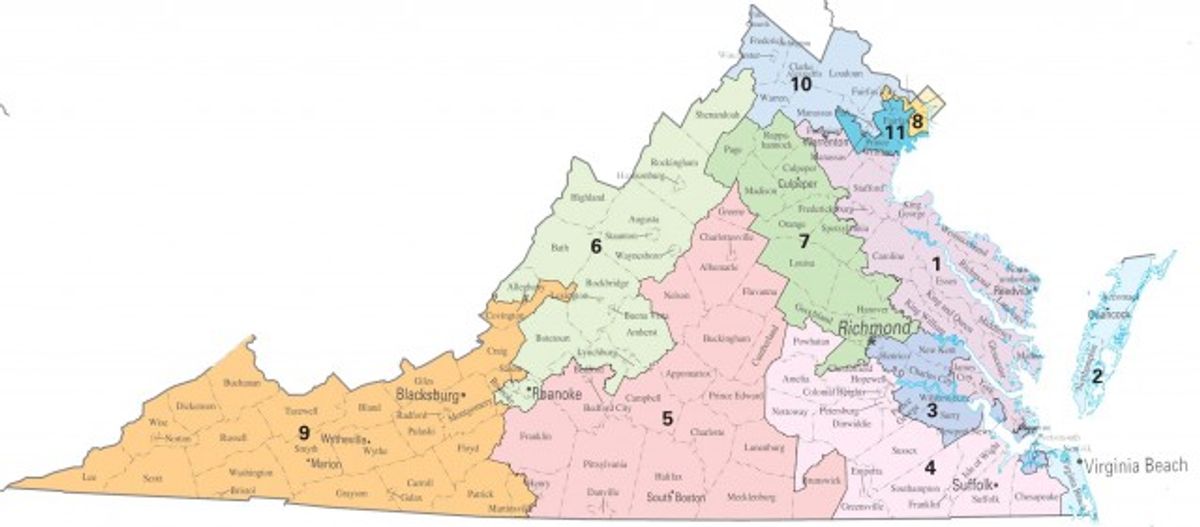 This morning, I wrote on an emerging Republican plan—in swing states won by President Obama—to rig presidential elections by awarding electoral votes to the winner of the most congressional districts. Because Democratic voters tend to cluster in highly-populated urban areas, and Republican voters tend to reside in more sparsely populated regions, this makes land the key variable in elections—to win the majority of a state’s electoral votes, your voters will have to occupy the most geographic space.
This morning, I wrote on an emerging Republican plan—in swing states won by President Obama—to rig presidential elections by awarding electoral votes to the winner of the most congressional districts. Because Democratic voters tend to cluster in highly-populated urban areas, and Republican voters tend to reside in more sparsely populated regions, this makes land the key variable in elections—to win the majority of a state’s electoral votes, your voters will have to occupy the most geographic space.
In addition to disenfranchising voters in dense areas, this would end the principle of “one person, one vote.” If Ohio operated under this scheme, for example, Obama would have received just 22 percent of the electoral votes, despite winning 52 percent of the popular vote in the state.
For this reason, I didn’t expect Republicans to go forward with the plan—the risk of blowback is just too high. My skepticism, however, was misplaced. In Virginia, a local news station reports that just this afternoon, a state Senate subcommittee recommended a bill end Virginia’s winner-take-all system and apportion its 13 electoral votes by congressional district.
Unlike similar proposals in Pennsylvania and Michigan, this one wouldn’t award the remaining electoral votes to the winner (Virginia has 11 districts). Rather, the winner of the most congressional districts would get the final two votes. If this were in effect last year, Obama would have gotten just 4 of the state’s votes, despite winning 51 percent of its voters.
The bill’s sponsor, Republican Senator Charles W. “Bill” Carrico, says the change is necessary because Virginia’s urbanized areas can outvote rural regions, weakening their political strength. In other words, Carrico thinks winning land is more important than winning people when it comes to presidential elections.
It should be said that this scheme, if carried out on a large scale, will guarantee an explosion of recounts. In any district where there is a narrow margin between the two candidates, there will be every incentive to challenge the results. Republicans present this as a way to streamline elections, but in reality, it would complicate them, and drag out the process for weeks—if not months. It would be Florida in the 2000 election, multiplied by 435.
It should also be said, again, that this constitutes a massive disenfranchisement of African American and other nonwhite voters, who tend to cluster near urban areas. When you couple this with the move on Monday to redraw the state’s electoral maps—eliminating one state senate district and packing black voters into another, diluting their strength—it’s as if Virginia Republicans are responding to Obama’s repeat victory in the state by building an electoral facsimile of Jim Crow.



Shares